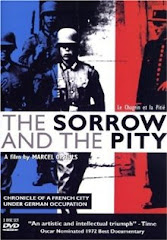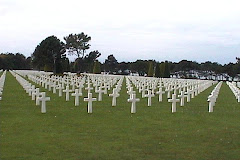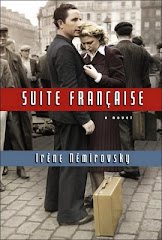This afternoon was to top off the day with a journalist, Annette Levy-Willard, who is an editor and journalist for Liberation, a newspaper known for its leftist leanings (http://www.liberation.fr/) . She was recruited by Jean-Paul Sartre and Simone de Beauvoir for this job which is, in and of itself, fascinating to me. She was the first to interview a Vichy official, Maurice Papon, who was finally brought to justice for his crimes in the nineties. This event was extremely important in the struggle for France to finally realize and come to terms with some of its ugly past. Papon was an official in the government namely the Bordeaux region. He single handedly signed off on documents approving the arrest and deportation of Jews in the region and actively seeking those in hiding. Annette describes him as well-behaved and quite slick, however he was not an anti-semite. He originally denied that he even signed these documents and eventually stopped this claim. One of the most striking pieces that Annette shared was the fact that Papon flatly insisted that he was just doing his job and he would do it again.
Papon almost escaped prosecution by claiming that he saved over 100 Jews. His contention was that he crossed their names off of the list. Annette and the lawyer prosecuting this crime uncovered important details that in no uncertain terms refuted Papon's claims. Yes, he crossed the names off of the list, however these names should never have been there in the first place because they were not Jews. For example, it was discovered that one of the names on the list that was crossed was identified as Jewish but that was only her married name. Papon was actually doing as the rule required because these people did not meet the requirements set forth by the Nazi Regime.
In the end, it all comes down again to the concept of indifference. Papon could have done something but due to his desires as a technocrat, he was blinded by ambition. All of the people that he had arrested and eventually deported perished at Auschwitz. Indifference seems to be a dangerous tool wherever exercised.






























It seems to me that indifference is a learned concept. I teach in a middle school, and when I first started there, bullying was a major issue. At first, we worked on the "bullies", but they never saw themselves as the bully. Then, we learned that the bystander was really the group to be targeted. We have had many conversations over the years with kids who see the bullying happening. They say that if they are afraid that if they get involved, the bully will turn on them. If they are friends with the bully, maybe, s/he will not attack them. Also, we saw that former victims chose the path of the bully at times. The indifference is insipid. Incidences of bullying seemed to have diminished at our schools since our administration and faculty work hard against it, but as new kids appear in the school, we always have to work on this.
RépondreSupprimerBasically, people like Papon and other collaborators learned what they learned in school, probably middle school. This was the way one survived, and for Papon, he took a side (history's bad side especially because they lost--but what if they had won, those Nazis?) and he was trying to succeed as a technocrat. There are people I know who justify collaborating as the only way to bring peace to an already devistated nation.
How is the indifference dissimilar to the silence of Americans on issues such as health care for all and marriage for all who seek it?
One might say, "But Sheila, one is life or death, and the other is simply a lifestyle issue." My argument is that they all are life and death issues, but because one doesn't die immediately in the latter situations, we are willing to let it go. However, this is how it began for men and women in Germany or France regarding Jews and others who were not favored by the Nazi regime. It was simply a lifestyle issue to them, and they found out it was worse.